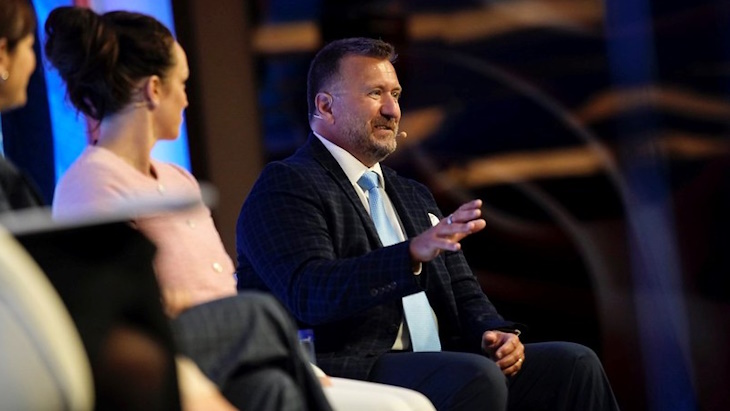Speaking in a panel discussion titled Power Partners - Connecting end users with 24/7 energy, Noe - who has developed a strategic roadmap for utilising new nuclear energy that complements Microsoft’s clean energy goals and decarbonisation commitments - said that Microsoft is already "one of the largest consumers of renewable electricity" and its policy "considers nuclear in same vein as renewables". It is willing to advocate for policies for its more rapid deployment, and to work with manufacturers and utilities to accelerate this in regions where nuclear is an accepted part of the energy mix.
The biggest difference between nuclear and renewables is that nuclear brings "firm power", Noe said. "At the end of the day you have to have our data centres, you have to have electrons coming into the data centre. So, renewables are a wonderful part of our all-of-the-above mix. However, we do clearly see there have to be other sources of firm power, that that's also clean from a carbon standpoint and available - our interest in nuclear, that's it, in a nutshell.
"The big thing I think, the challenge for the industry, is how do we accelerate it," he said, adding that Microsoft was already being "very active" in collaborating with industry players to develop and leverage AI for "licensing and other facets" to help accelerate development.
The market will also support the deployment of new nuclear, particularly small modular reactors (SMRs) - and the financial models to support such projects are already being developed, Noe said.
"It's going to be based on market. It's going to be based on the technology, the size of the plant. If you take SMRs, the most likely scenario is … private equities … because you're talking about less than USD5 billion for construction." This level of cost projection is similar to "large gas or oil exploration", he said. "We've got to work together to make sure it happens. But but yeah, the markets are being developed."
Earlier this year, Microsoft teamed up with North American steel manufacturer Nucor Corporation and fellow tech giant Google to work together across the electricity ecosystem to develop new business models and aggregate their demand for advanced clean electricity technologies, including advanced nuclear. Last year, the company signed an energy matching agreement with Constellation Energy Corp to harness the environmental attributes of Constellation's nuclear generation to reduce the carbon footprint of a data centre in Virginia.
Questioned by an audience member on the speed of deployment of new nuclear to meet the demand from data centres, particularly in the USA, Noe said he did not feel the USA had "missed the boat", but considerations such as the challenges posed by existing transmission systems must also be considered. Co-locating nuclear with end-users might be one way of meeting that challenge.
Microsoft does not "want to own and operate generation assets, any generation assets", he said. "But if we need to wait on transmission, it may make more sense to put in an SMR and be co-located to a degree. But I think in the next couple of years a lot of these different schemes are going to be used by the different end users working with utilities."
Though Microsoft is not considering equity stakes in nuclear plants, Noe said the company's investments in owning and operating data centres were helping to de-risk new nuclear by providing purchasing certainty. "We're spending tremendous amounts of CapEx on data centre build-out and core services, so right now there's not much of an appetite for CapEx going away from our core business to the energy side. However, how we enable it is is on the back end giving surety for purchasing," he said.















